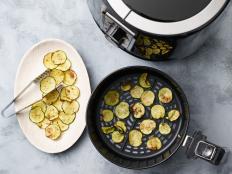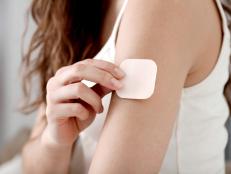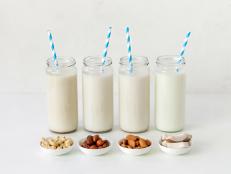The Right Way to Wash Your Hands
It might seem surprising, but many people don't wash their hands when they should — and if they do, they don't do it the right way.

PeopleImages/Getty Images
This post was originally published in 2009, but has been updated with new information as of February 2020.
--
Washing your hands when you cook, after using the restroom and just in general can keep germs from spreading. Seems simple enough, but many folks don't do it or do it properly. Here are some hand-washing basics. Read them!
How To Wash Your Hands
It's not hard, we promise. Just follow these five basic steps:
- Wet your hands. Turn on the water to as hot as you can stand it and wet your hands.
- Apply soap. Many folks like to apply soap first and then wash it away when they turn on the water. Soap needs to be used on wet hands to work. You’ll be able to see suds if you’re doing it right.
- Rub your hands together. Make sure to scrub between your fingers and up your forearm. Some people teach their kids to sing “Happy Birthday” twice, which covers the recommended, 20-second lathering and scrubbing time.
- Rinse thoroughly.
- Dry your hands. No, not on the kitchen towel you use to dry dishes, carry hot plates or clean off the counter! Do that and you'll dirty your clean hands again. Dry hands on a designated hand towel or use a paper towel.
When To Wash Your Hands
If you’re preparing food, you need to wash your hands properly. Remember: Your hands are your number one kitchen tool and you need to make sure they are clean at all times. Here are some situations when you definitely need to wash those hands:
- After using the restroom (many folks forget!)
- After touching raw foods like meat, eggs, fish
- After talking on the phone
- After taking a break
- After sneezing, coughing or scratching yourself (even brushing your hair away)
- Before and after eating
What About Hand Sanitizer?
Lots of stores sell clear liquid that you can apply to your hands to help reduce bacteria. These hand sanitizers are not meant to replace hand washing. However, you can use them after washing your hands or in a pinch (say, at a picnic with no bathroom nearby). I often use them after I get off the subway or in my car on the way home from work. You don’t want to use hand sanitizers every minute of the day — no more than 8 to 10 times daily is suggested. If you overuse the sanitizer, bacteria can remain on your hands and won’t be killed.
For more info on hand washing, visit the Center for Disease Control website or the World Health Organization.
Related Content:

































